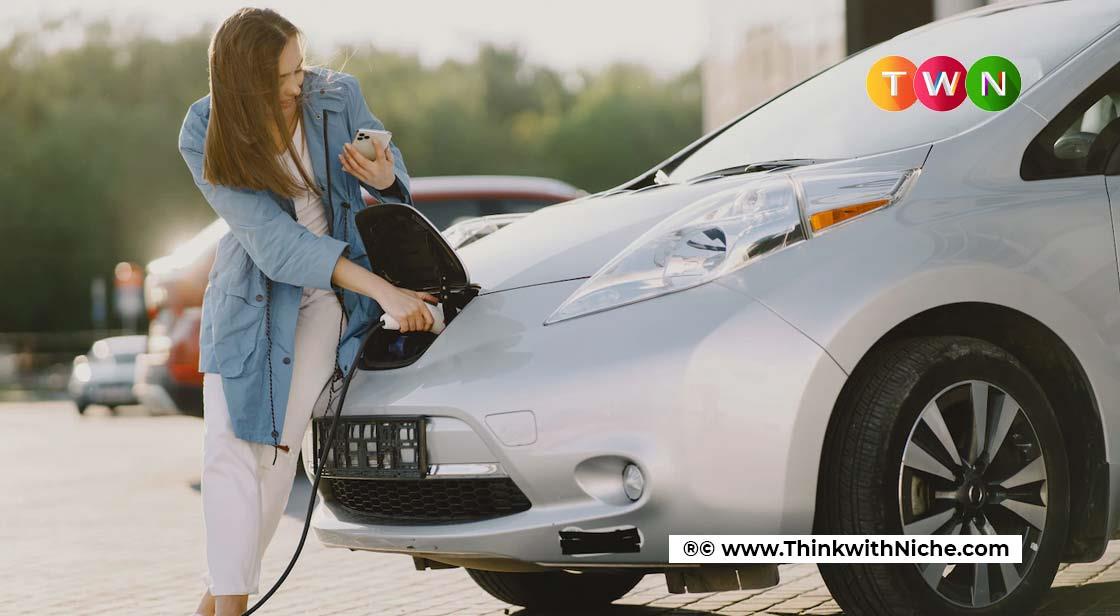
In India, pollution levels have nearly reached critical levels. India is ranked fifth in the Climate Risk Index 2020, indicating that it is vulnerable to climate change. As a result, e-mobility appears to be the only viable option.
The Indian government has decided to promote electric vehicles (EVs) in order to reduce pollution and address environmental concerns. However, according to a Castrol report, due to a variety of factors, new car owners will not be purchasing EVs until 2030. Infrastructure is at the top of the list as one of the most important factors. Despite the disadvantages of using and promoting electric vehicles on Indian roads, the total number of electric vehicles on Indian roads is expected to reach nearly 100 million by 2030, up from less than half a million in 2020.
But, exactly, what are electric vehicles (EVs)?
More about Electric Cars
Electric cars are a relatively new type of vehicle that runs on electricity rather than traditional fuels such as gasoline, diesel, or compressed natural gas.
Electric car batteries can be recharged and reused. There are currently three types of electric vehicles available in India.
They are as follows:
· Electric vehicles that run entirely on batteries
· Electric hybrid vehicles
· Electric vehicles powered by the sun
Electric Vehicles: A Brief History
Electric vehicles have been around since the mid-nineteenth century. In 1828, Nyos Jedlik invented a new type of electric motor. He created a small model car that could run on his new motor. Between 1832 and 1839, a Scottish explorer named Robert Anderson discovered a primitive electric carriage.
In 1835, Professor Sibrandus Stratingh of Groningen and his German assistant Christopher Becker developed a small electric car powered by non-rechargeable primary cells.Initially, the speed of electric cars powered by batteries was significantly slower than that of cars powered by internal combustion engines. People would be unconcerned about investing in EVs as a result.
Around the turn of the century, however, the situation changed. People began to be concerned about the pollution, bad gas emissions, and other environmental disasters caused by hydrocarbon-fueled vehicles.
Current Scenario
Since 2010, electric vehicles (aside from public transportation) have grown in popularity. The most surprising fact is that by September 2016, nearly 1 million electric vehicles had been delivered worldwide. At this point, global acceptance of electric vehicles has reached a tipping point. The rate of adoption was so rapid that nearly 4.8 million cars were sold by 2019, with 10 million sold by 2020. (In 2021, there was a decrease, with 6.5 million electric vehicles sold.)
The cost of batteries has dropped by 73 percent since 2010, and the adoption of electric vehicles has begun to accelerate. Electric vehicles are expected to dominate the next ten years.
India's Electric Vehicle Market Share
Manufacturing of electric vehicles is becoming more popular, and its market share is expected to grow significantly. By 2022, India's GDP is expected to have increased by a whopping 25%.
The best part is that, in addition to lowering pollution, EVs have the potential to save $60 billion in oil imports by 2030. India's oil demand is currently 82 percent met by imports. As a result, it is clear how beneficial lowering import costs will be for the Indian economy.
EVs Fuel Price
Surprisingly, electric vehicle fuel can cost as little as 1.1Rs/km. As a result, the overall cost of travelling 5000 km in an EV is reduced by about Rs 20,000. It will also cut down on vehicle emissions, which would otherwise result in a 3% annual GDP loss.
Campaigns for EV Adoption
When it comes to e-mobility, only electric vehicles are available. India's fuel prices increased nearly 75 times between April 1, 2020, and January 31, 2021.
With the rising cost of gasoline (almost 95Rs/liter in Delhi as of June 2021), many Indian states have already embraced the use of electric vehicles. Delhi and Kolkata are the frontrunners in this regard. They promoted e-rickshaws as an environmentally friendly and cost-effective mode of transportation. In Delhi, nearly 1 lakh e-rickshaws are in operation, and Kolkata is not far away from this rally. This development is encouraging private car owners to switch to electric vehicles.
Tags:
future of electric vehicles in india, India ev policy, History of Electric vehicles, Sustainable Future,
Read This Full ARTICLE, Click Here



Comments
Post a Comment